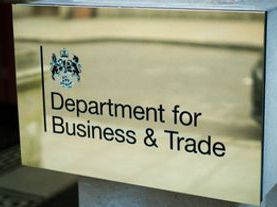Following the Chancellor delivering the Autumn Budget on 26 November, the BVRLA distils the key details that members need to be aware of.
The Autumn Budget has a direct impact on several areas of Motoring Taxes, including many issues that the BVRLA has been engaging with officials over a number of months and years.
The Chancellor’s Budget Speech was important in what it covered and also what it did not.
The Good News:
The introduction of the leasing sector into the Capital Allowances regime is a major break-through; the protection of EV salary sacrifice at a time when capping the NIC benefits from pension salary sacrifice could easily have extended into our sector is a big win for our leasing members; the introduction of a new £50,000 limit for the Expensive Car Supplement is a longstanding ask from rental and leasing members.
Capital Allowances:
Capital allowances: new first-year allowance and reducing main rate writing-down allowances - GOV.UK
Businesses will be able to claim a first-year allowance (FYA) of 40% for expenditure incurred on or after 1 January 2026 on ‘main rate’ assets bought for leasing (this includes rental).
Historically, leased assets have been excluded from Full Expensing. Although, today’s measure does not give 100% tax relief for leased assets, it is a step in the right direction, encouraging investment where FYAs have not previously been available. Challengingly, cars are excluded. There are also some wider rules and exclusions, and we will get more details over the next days.
However, very unhelpfully, the rate of writing-down allowance (WDA) on the main pool of plant and machinery will reduce from 18% to 14% per year; the Budget does not change the WDA on the special rate pool, which is currently 6%.
Salary Sacrifice:
Changes to salary sacrifice for pensions from April 2029 - GOV.UK
From April 2029, the amount that is exempt from National Insurance contributions (NICs) will be capped at £2,000 a year for employee pension contributions made via salary sacrifice. Thankfully, this cap does not extend to EV salary sacrifice. The importance of company car tax on the EV transition is something that Government has told us repeatedly that they have heard our messaging on.
Expensive Car Supplement:
The Chancellor announced an increase in the threshold at which zero-emission cars will have to start paying the Vehicle Excise Duty expensive car supplement. The threshold has increased from £40,000 to £50,000. It will apply to zero emission vehicles (ZEVs) registered from 1 April 2025 onwards. The change applies retrospectively, meaning that most vehicles registered from 1 April 2025 will not be required to pay the charge. Any vehicles taking out a second licence with effect before 1 April 2026 will be required to pay one year of the charge only.
This has been an BVRLA ask in both this year's and earlier Budget submissions, and it is welcomed.
The threshold has been maintained at its current level of £40,000 for all other cars.
PHEV BiK Easement:
Plug-in hybrid electric vehicles — benefits in kind easement - GOV.UK
Alongside the Budget speech, HM Treasury have finally provided clarity on the benefit in kind easement for PHEVs. There will be a notional
CO2 emissions figure for certain PHEVs to be a nominal value from 1 January 2025 to 5 April 2028, with transitional rules. This will remove the need for companies to create systems to cope with two different CO2 rates. More details will follow soon.
While challenging, this is a major win for the sector from the original position that had been suggested by HMT and HMRC.
The biggest change: EV (and plug-in-hybrids) pay-per-mile
Despite these positive wins, the overshadowing news is the announcement of a 3 pence per mile eVED charge for all electric vehicles (and 1.5pence per mile for plug-in hybrids) starting in April 2028. There is a Government consultation that has been launched today, seeking views on the operationalisation of the policy measure. Whilst BVRLA acknowledges the need to replace declining fuel duty revenues, we are deeply concerned by the impact on existing EV drivers and the future impact, especially without any direct support for rental and leasing companies who have already invested billions in the EV transition.
Other areas of interest:
- Electric Car Grant extended: the Government recognise that the eVED may hamper the EV transition and has tried to soften the blow with an additional £1.3 billion made available until 2029-30, with the previous criteria maintained of two tiers of support at £1,500 and £3,750.
Charging measures:
- A new consultation has been launched today on Permitted Development Rights to support the installation of electric vehicle charging infrastructure. This consultation asks about further proposed changes to support the installation of electric vehicle charging infrastructure allowing for multiple units of equipment housing units for electric vehicle chargepoints in non-domestic, off-street car parks, the installation of cross-pavement solutions and associated domestic chargepoints.
- Investing an additional £100m into the public chargepoint rollout
- £100m of resource funding for local authorities and public bodies to support the training and deployment of specialist staff, accelerating the rollout of public chargepoints.
- Introducing a ten-year 100% business rates relief for EV chargepoints and EV-only forecourts.
- Launching a review of charging costs in Q1 2026.
- Fuel Duty: extending the 5p fuel duty cut until the end of August 2026 with rates then gradually returning to March 2022 levels by March 2027. The planned increase in line with inflation for 2026-27 will also be cancelled. Alongside the introduction of Fuel Finder, these measures are expected to save families £89 next year compared to previous plans.
- ECOS: changes to benefit-in-kind rules for Employee Car Ownership Schemes will be delayed until April 2030. For those still in contracts at that time, transitional arrangements will also be put in place to provide additional support.
- VED: The government will uprate Vehicle Excise Duty rates for cars, vans and motorcycles in line with RPI from 1 April 2026. There are no proposals to shift to a weight-based VED.
- BIK: There were no changes to BIK, and the Budget also did not provide any more foresight on BIK rates past 2029/30.
What was left out?
It was very disappointing to see no support for the used BEV market. We have several asks around this and will continue to press Government for the need to support both the used vehicle driver and not just drivers of new vehicles.




